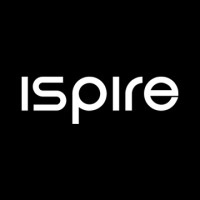
Ispire
Your source for custom dosing hardware. Nothing for Sale; 21+ only | US stock available Ispire. THIS WAY UP ↑↑



Your source for custom dosing hardware. Nothing for Sale; 21+ only | US stock available Ispire. THIS WAY UP ↑↑

As part of the Lenovo family, Motorola Mobility is creating innovative smartphones and accessories designed with the consumer in mind. That’s why we’re looking for the thinkers, innovators and problem solvers who believe in working together to challenge the status quo. If you share our commitment to creativity and a passion for bringing new possibilities to life in mobile technology, we want you to say hello to Moto. Motorola has a long history of inventing game-changing technology. As a member of the Motorola team, you’ll help us continue our legacy by collaborating with talented colleagues around the globe to create new products that are not only different, but better. We thrive in an open and supportive culture, working in teams where your contribution has impact. We believe in transparency across all levels of the business, valuing every person’s opinion and encouraging new ways of thinking. Here, we all take accountability for our work, we drive consumer-centric decision-making, and we enable our people to push the line of innovation. Want in? Let’s get started on something different, together. Hello you. Hello Motorola. http://lenovocareers.com/areas-mobile.html
Security & Compliance Standards Overview












No incidents recorded for Ispire in 2025.
No incidents recorded for Motorola Mobility (a Lenovo Company) in 2025.
Ispire cyber incidents detection timeline including parent company and subsidiaries
Motorola Mobility (a Lenovo Company) cyber incidents detection timeline including parent company and subsidiaries
Last 3 Security & Risk Events by Company
Angular is a development platform for building mobile and desktop web applications using TypeScript/JavaScript and other languages. Prior to versions 19.2.16, 20.3.14, and 21.0.1, there is a XSRF token leakage via protocol-relative URLs in angular HTTP clients. The vulnerability is a Credential Leak by App Logic that leads to the unauthorized disclosure of the Cross-Site Request Forgery (XSRF) token to an attacker-controlled domain. Angular's HttpClient has a built-in XSRF protection mechanism that works by checking if a request URL starts with a protocol (http:// or https://) to determine if it is cross-origin. If the URL starts with protocol-relative URL (//), it is incorrectly treated as a same-origin request, and the XSRF token is automatically added to the X-XSRF-TOKEN header. This issue has been patched in versions 19.2.16, 20.3.14, and 21.0.1. A workaround for this issue involves avoiding using protocol-relative URLs (URLs starting with //) in HttpClient requests. All backend communication URLs should be hardcoded as relative paths (starting with a single /) or fully qualified, trusted absolute URLs.
Forge (also called `node-forge`) is a native implementation of Transport Layer Security in JavaScript. An Uncontrolled Recursion vulnerability in node-forge versions 1.3.1 and below enables remote, unauthenticated attackers to craft deep ASN.1 structures that trigger unbounded recursive parsing. This leads to a Denial-of-Service (DoS) via stack exhaustion when parsing untrusted DER inputs. This issue has been patched in version 1.3.2.
Forge (also called `node-forge`) is a native implementation of Transport Layer Security in JavaScript. An Integer Overflow vulnerability in node-forge versions 1.3.1 and below enables remote, unauthenticated attackers to craft ASN.1 structures containing OIDs with oversized arcs. These arcs may be decoded as smaller, trusted OIDs due to 32-bit bitwise truncation, enabling the bypass of downstream OID-based security decisions. This issue has been patched in version 1.3.2.
Suricata is a network IDS, IPS and NSM engine developed by the OISF (Open Information Security Foundation) and the Suricata community. Prior to versions 7.0.13 and 8.0.2, working with large buffers in Lua scripts can lead to a stack overflow. Users of Lua rules and output scripts may be affected when working with large buffers. This includes a rule passing a large buffer to a Lua script. This issue has been patched in versions 7.0.13 and 8.0.2. A workaround for this issue involves disabling Lua rules and output scripts, or making sure limits, such as stream.depth.reassembly and HTTP response body limits (response-body-limit), are set to less than half the stack size.
Suricata is a network IDS, IPS and NSM engine developed by the OISF (Open Information Security Foundation) and the Suricata community. In versions from 8.0.0 to before 8.0.2, a NULL dereference can occur when the entropy keyword is used in conjunction with base64_data. This issue has been patched in version 8.0.2. A workaround involves disabling rules that use entropy in conjunction with base64_data.